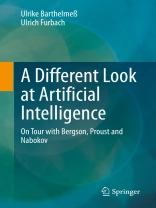Digitalization is inexorably conquering our lives – also with artificial intelligence (AI) methods. Search engine operators, social network operators and shipping platform operators know more and more about us, about our buying and living habits. User data has become a valuable commodity. We live and work with computer systems that behave intelligently or are even intelligent. Questions like ‘Can machines be intelligent?’ or ‘Can they have emotions or a consciousness?’ keep popping up.
To enable readers to form their own opinion on these questions, the authors clearly explain individual techniques or methods of AI and relate them to approaches from philosophy, art and neurobiology. Topics such as logical reasoning, knowledge and memory play just as important a role as machine learning and artificial neural networks. In the foreground is the question of what constitutes memory and thinking, what role our emotions play when we as humans move through life, through the world. A book that offers unusual perspectives on artificial intelligence.Daftar Isi
Artificial intelligence.- Body and mind.- Time and memory.- Representation of knowledge.- Mnemonics.- The art of seeing.- Free will.- Remembering: a creative act.- Frame and structure.- Consciousness.- Language.
Tentang Penulis
Ulrike Barthelmeß studied German and Romance languages and literature in Munich and Toulouse. In Toulouse she taught German as a foreign language and worked as a translator. In Germany she taught German and French at grammar schools and at the University of Koblenz-Landau she was employed in a research project on cognition.
Ulrich Furbach is a retired professor of artificial intelligence at the University of Koblenz-Landau. His research areas include automatic reasoning, agents and robotics, and question-answering systems. He holds a habilitation from the Technical University of Munich, a Ph D from the University of the German Armed Forces, and is founder and shareholder of the AI company wiz AI solutions Gmb H.












